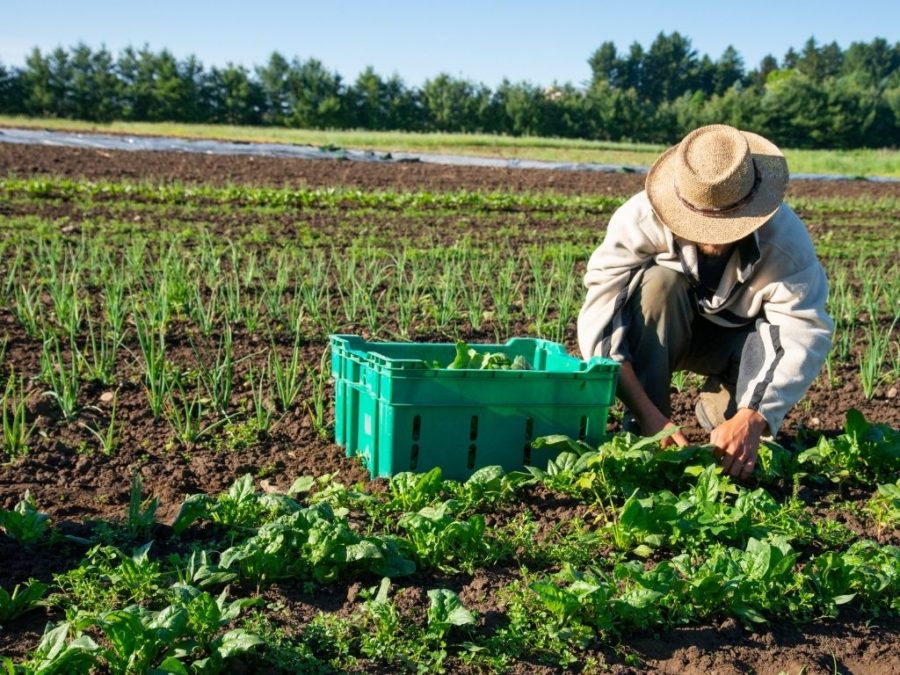Master Farming Beginner Complete Guide!

Imagine stepping into a world where the earth beneath your feet is your office, the sun your partner, and the satisfaction of growing your own food is your reward. That’s the beauty of do farming meaning – reaping success straight from the earth. Whether your goal is to enjoy a farming experience, grow a humble herb garden, or become a serious agricultural entrepreneur, mastering the basics can set you on a path to a lifetime of fulfillment. In this beginner’s guide, we will explore everything you need to know to embark on this journey successfully.
Understanding the Basics: What is Farming?
To embark on your journey, you must first understand what farming is. Do farming meaning involves not just the act of growing crops or raising livestock but also the art of nurturing life from the soil. It’s about understanding the ecosystem and balancing it for a bountiful harvest. Farming requires patience and a deep understanding of nature, making it an enriching and rewarding endeavor.
Getting Started: Beginner Farming Tips
Starting out on your farming journey can be as smooth as a well-plowed field. Here are some beginner farming tips to help you get started with easy farming methods.
Choosing the Right Crops
When starting, it’s crucial to select crops that are easy to grow and require minimal effort. These could be vegetables like tomatoes, lettuce, and radishes. These crops are beginner-friendly and are less susceptible to pests and diseases. Consider your climate and soil type when choosing your crops, as some thrive better in certain conditions than others. If you're still unfamiliar with your soil type, you can find resources to help via the USDA's guide on soil types.
Soil Preparation and Fertilization
Soil is the lifeline of your crops, and preparing it correctly is vital for successful farming. Ensuring your soil is rich in nutrients can be achieved through composting and using organic fertilizers. This will foster a robust growing environment for your crops. Always test your soil to understand its needs better and adjust your fertilization accordingly. Use resources like this Almanac guide on soil testing to get you started.
Watering and Irrigation
Watering is crucial, but overwatering can be as detrimental as underwatering. Consistency is key. Ensure your crops receive the right amount of water, neither too much nor too little. Irrigation systems can help automate this process, ensuring an even distribution of water across your farm. According to FAO's guidelines on irrigation, having a well-designed system can save you time and effort, making your farming experience more enjoyable.
Maintaining Your Farm: Follow through Steps
After planting, maintenance is key to enjoying your farming experience. Regularly monitor your crops for pests and diseases, and take preemptive measures to keep them healthy. Pruning, weeding, and rotational cropping (planting different crops in your soil in each growing season) are essential practices that will ensure your crops thrive. These methods not only keep pests and diseases at bay but also maintain soil fertility.
Cultivating a love for your crops means giving them the attention they deserve. Sometimes, simple steps like picking off bugs by hand or manually cutting weeds can save your plants from more significant threats. Your presence and care, as small as they may seem, will cultivate a deep bond with your farm, making it the most rewarding experience.
Agriculture: Beyond the Basics
Agricultural practices aren't just about what you grow, but also about how you grow it. Sustainable farming, which includes organic methods and conservation practices, can benefit your crops and the environment. This involves using less water, reducing chemical usage, and preserving biodiversity. In the long run, these practices can lead to a healthier environment and more robust yields. Dive deeper into sustainable agriculture through resources available at FAO's guide on sustainable food value chains
Conclusion
Farming is more than just a hobby or a job; it's a way of life. It teaches patience, responsibility, and respect for nature. By starting with easy farming methods and following successful beginner farming tips, you can set yourself on a path to a successful and satisfying experience of do farming meaning. Embrace the journey, learn from your successes and failures, and transform your backyard into a bounty.
Click on our resources and further your exploration into the farming world.
Frequently Asked Questions
1. What are the easiest crops for a beginner farmer?
The easiest crops for a beginner farmer are generally vegetables that are fast-growing and hardy. These include tomatoes, lettuce, radishes, and herbs like basil and mint. These plants are less prone to pests and diseases, making them ideal for beginners.
2. How important is soil preparation in farming?
Soil preparation is incredibly important in farming. It ensures that your plants have the nutrients they need to grow strong and healthy. Proper soil preparation involves composting, adding organic fertilizers, and understanding your soil type to adjust its needs accordingly.
3. What are some beginner-friendly irrigation methods?
Beginner-friendly irrigation methods include drip irrigation and using watering cans. Drip irrigation is efficient as it delivers water directly to the plant roots, reducing waste. Watering cans are simple to use and ensure you have control over how much water each plant receives.
4. How can I maintain my farm effectively?
Maintaining your farm involves several steps, including regular monitoring for pests and diseases, weeding, and rotational cropping. Pruning your plants and using mulch can also help in maintaining soil moisture and reducing weed growth.
5. What are the benefits of sustainable farming?
Sustainable farming benefits both your crops and the environment. By using less water, reducing chemical usage, and preserving biodiversity, you can create a healthier ecosystem. Sustainable practices often lead to more robust yields in the long run and contribute to the well-being of the planet.
```
0 Response to " Master Farming Beginner Complete Guide!"
Post a Comment